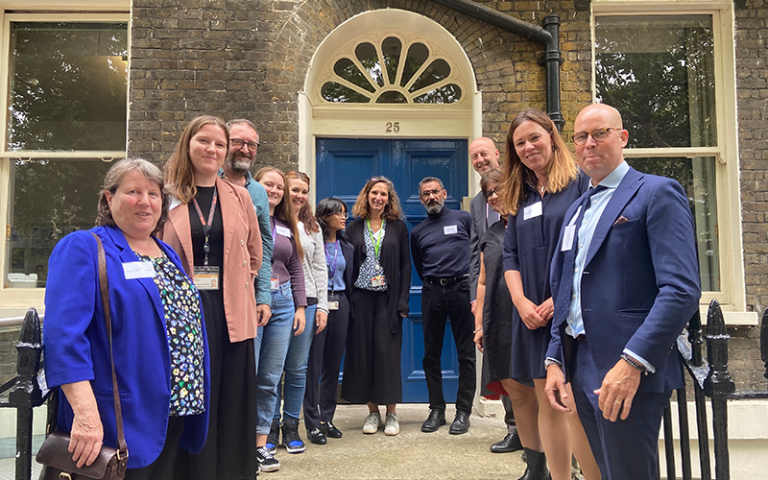IOE and UNESCO examine how education will support human flourishing in the future
28 November 2022
Policy makers, education professionals and academics discuss implications of UNESCO’s International Science and Evidence-Based Education (ISEE) Assessment and reorient education to achieve sustainable and peaceful societies.

IOE, UCL’s Faculty of Education and Society, and the UNESCO Mahatma Gandhi Institute for Peace and Sustainable Development (MGIEP) examined the ISEE Assessment’s implications for education policy and practice in a two-day event on 15 and 16 September 2022.
The report, “Reimagining education”, addresses how knowledge, education and learning must change to meet the challenges of the 21st century and enable people to flourish in a world of increasing complexity, uncertainty and precarity. Led by UNESCO, the report was formed by 300 experts across 45 countries to pool expertise on educational systems around the world and work towards achieving Sustainable Development Goal 4.
Reimagining education for human flourishing and addressing inequality is an ongoing and complex process. The event, co-hosted by IOE’s Department of Psychology and Human Development, highlighted the value of facilitating cross-disciplinary discussions about gaps that still need to be addressed.
A roundtable debated key findings including the role of personalised education, as well as the need to consider the wider societal context within which education takes place.
Further workshops explored the development of a learner-centric assessment of Social and Emotional Learning (SEL) that could inform practice to support students’ wellbeing and social and emotional needs. The discussion identified challenges inherent to creating a global assessment framework. In particular, the concepts need to be clear, translatable and culturally relevant, Additionally, any assessment framework that is developed must be dynamic, to ensure it can effectively inform practice and support learners’ needs.
Watch the discussion
Three IOE academics contributed evidence as part of the ISEE Assessment’s working groups. Dr Jo Van Herwegen, present at the event among several other working paper authors, contributed to Working Group 2: Education and Context as co-Lead author of the chapter on educational neuroscience contexts. Also in Working Group 2, Tejendra Pherali (Professor of Education, Conflict and Peace) co-authored a chapter on curriculum and pedagogy in a changing world. Elaine Unterhalter (Professor of Education and International Development) contributed to working groups 1 and 4 as Review Editor.
Dr Van Herwegen said: “Working on this report has been very much an multidisciplinary and international effort, with contributions from economists, philosophers, linguists, neuroscientists, psychologists and educationalists from across the globe. This way of working is not always easy.
“Besides the logistics of different time zones, it required us to discuss the priorities that are relevant at a global level, to agree on definitions and terminology as well as what can be considered best evidence. However, the result is an in-depth scientific report that is not only internationally relevant but includes a broad and inclusive view of education.”
This year IOE celebrates its 120th year of work to transform lives through education, which coincides with UNESCO MGIEP’s 10th anniversary.
Links
- Read the full report and access the Summary for Decision Makers
- Q&A with Dr Jo Van Herwegen
- Department of Psychology and Human Development
- IOE120
Image
Credit: Christian Wetells.
 Close
Close

